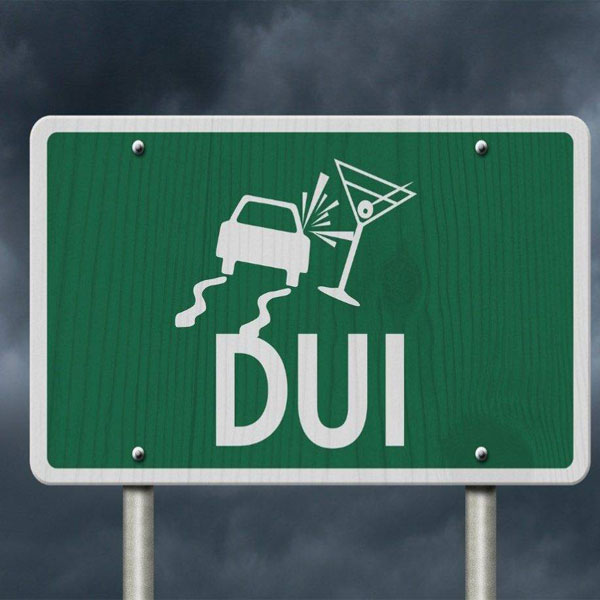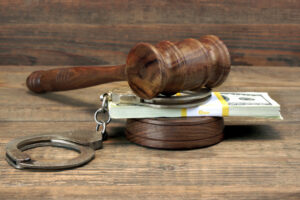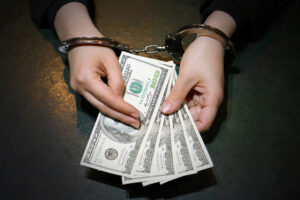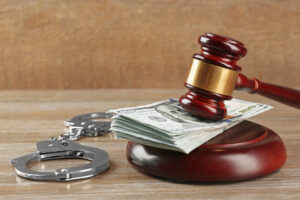Your case might have unique circumstances, but, typically, getting a DUI charge can be a confusing and upsetting experience. Here’s what DUI means, what to expect when you get charged, what penalties to expect in Louisiana, how to avoid future incidents, and now you can navigate the various stages of a DUI arrest.
What Is a DUI?
DUI (also referred to as DUII, DWI, OUI, or OWI, depending on what state you live in) means driving under the influence of alcohol or drugs. This may include not just illegal substances but prescription medications and attempting to drive a vehicle while impaired. It’s different from being intoxicated in public or disturbing peace while intoxicated, which might result in a drunk and disorderly charge, but doesn’t involve operating a vehicle.
DUI’s Components
A DUI consists of several components, and the crucial one is that driving was attempted while intoxicated. Let’s look at what’s involved in a DUI.
- Operating a vehicle. Even if you are not driving, you can be charged with a DUI if you put your keys in the ignition, press any buttons, or activate any gears. In some states, even if you are parked, but are sitting in a driver’s seat, you can get detained as these actions fall under the definition of operating a vehicle and show your intent to drive while impaired. If you’re sitting or sleeping in the backseat, it demonstrates a lack of intention to move a vehicle and you won’t be charged.
- Being under the influence. This means you are impaired from consuming alcohol or drugs and it’s negatively impacting your ability to operate a vehicle safely.
- Submitting to a field sobriety test. If you are pulled over and the law enforcement officer suspects you might be driving under the influence you might be asked to submit to a field sobriety test. This includes some actions that are typically difficult to perform when you’re impaired, such as reciting the alphabet backward, walking in a straight line, or balancing on one foot.
- Your blood alcohol level (BAC) is above the legal limit. In many states, that limit is 0.8%, including in Louisiana. Not everyone reaches and exceeds the BAC in the same time frame with the same number of drinks, but we recommend that you don’t overdo it, even accidentally, and know your limits.
- Refusing to submit to a breathalyzer, a preliminary alcohol screening (PAS) test. It won’t prevent you from getting charged with a DUI and can still cause negative consequences, but those are typically voluntary.
- Getting arrested and setting bail. Depending on the severity of the charge, just like with other types of arrests, you can make bail and get out of jail. If you cannot make bail, you may find yourself incarcerated until your hearing.
- Driver’s license suspension. In many states, your driver’s license will be suspended automatically following a DUI arrest. Some states offer temporary permits for DUI arrestees, but the severity of your DUI charge can affect this.
- Appearing in court for your hearing. Again, like with other charges, if you fail to appear in court, it could lead the judge to issue a bench warrant for your arrest. It’s a good idea to have legal representation by someone who is well-versed in that state’s law regarding DUI charges. If you can’t afford it, the court will appoint a lawyer.
- The sentencing. If the charges are dismissed, there will be no DUI on your record and no conviction. If they stick, you might face a variety of consequences. DUI convictions may include:
- fines
- penalties
- license suspension
- participating in mandatory community service
- attending mandatory substance abuse programs
- installation of an ignition interlock device
- car insurance premium increase
- jail time.
A first-time offense, especially if no one was harmed, might get you a DUI misdemeanor charge. If you’re a repeat offender, or people get hurt, the consequences can be much more severe, including lengthy jail time and paying restitution to the victim or their family.
Is Pulling Motorists Over Legal?
It is, if the officer has reasonable cause (sometimes called “reasonable suspicion”) to believe the driver violated the law. This could be manifested by the signs of impairment like swerving, or it could be a traffic violation like a broken taillight or failure to stop at a stop sign. DUI checkpoints are also legal and don’t require any evidence of wrongdoing.
Also, if there’s probable cause to search your car for drugs or alcohol, the police have a legal right to do so, even without your consent. The law can get murky here, depending on your circumstances, so it’s best to consult a lawyer.
What Happens When You Refuse Sobriety Testing
While the field sobriety and breathalyzer tests are typically voluntary, because they are only used to assess whether there’s probable cause for a DUI arrest, blood, breath and urine tests can be mandatory under certain circumstances. All 50 states have “implied consent” laws that require motorists lawfully arrested for DUI to submit to chemical testing. Refusing them can have negative consequences and work against you during your trial.
What Happens When You Get a DUI in Louisiana?
According to the DMV, these are the LA DUI BAC laws:
- Age 21 or older non-commercial drivers: BAC of .08% or higher
- Commercial drivers: BAC of .04% or higher (school bus drivers are considered commercial drivers in Louisiana)
- Under age 21 drivers: BAC of .02% or higher
A first time-DUI offense in Louisiana is considered a misdemeanor, which can lead to the following penalties upon conviction:
- A minimum fine of $300 and a maximum of $1,000
- Minimum jail time of 10 days and a maximum of six months
- The driver can get up to two years of probation supervision
- Driver’s license suspension for 90 days
- Ignition interlock installment
- Loss of commercial driver’s license
- There are enhanced penalties for BAC of .20% or more or if driving with a child under the age of 12
- About 30 hours of education in driver improvement, substance abuse, and MADD victims impact programs
If a second offense occurs within 10 years, jail time and fines can increase. The third offense can lead to jail time up to five years, revoking a driver’s license for two years, and fines up to $2,000.
Louisiana Drunk Driving Defenses
You can work with your defense attorney to get the charges dismissed or minimized to get a lower penalty. According to DMV, potential defenses include:
- Improper roadblock setup
- Lack of probable cause for the original traffic stop
- Lack of proper procedure in explaining and/or administering the breathalyzer
- Lack of proper procedure in explaining and/or administering the BAC blood test
- Clean driving record
- No prior DUI convictions
- No injuries, property damage, or child passengers
- BAC is only slightly higher than the legal limit
- BAC wasn’t illegal when actually driving
Please note that Louisiana-licensed drinking establishments cannot be held civilly liable for third-party injuries caused by serving visibly intoxicated persons, but cannot serve alcohol to an underage person or a visibly intoxicated person. Penalties are 30 days to six months in jail, a fine of $100-$500, and suspension or revocation of the liquor license.
Top Things to Do After Your DUI Arrest
Here are some things you can do to help your DUI case once you’re arrested:
- Don’t talk to the police without your lawyer present. You have the right to remain silent in response to police questioning.
- Retain an attorney with experience handling DUI cases specifically. If you can’t afford one, one will be court-appointed to you.
- Share all evidence and information with your attorney.
- Record everything that happened, step by step, as soon as you can. If you commit the details only to your memory they can get hazy with time.
- Find any witnesses and gather all evidence if you think that helps the case. This can include security camera footage, bar bills, etc.
- You can reduce your sentence if you demonstrate good behavior between the arrest and the trial. Failing to do so can result in revoking bail and jailing you, or increasing the bail amount.
Getting Help to Prevent Future DUI Charges
If your DUI was a one-off and you can reasonably assume there’s no risk of a repeat offense, great. However, if there’s concern about multiple DUIs over time, here are some options for reducing the threat of getting a future DUI:
- Have a designated driver
- Use rideshare (Uber, Lyft) or a taxi if you’re going to be drinking
- Ask for a friend or a family member for a ride
- Crash at a friend’s place or get a hotel for the night
If you struggle with alcohol or drug abuse and want help or treatment, contact the SAMHSA’s National Helpline.
Frequently Asked Questions About Getting Arrested for DUI (FAQ)
What is a DUI?
A DUI occurs when a person operates a vehicle while under the influence of alcohol or drugs and is arrested by a law enforcement officer.
Is a DUI charge a felony or misdemeanor?
Often, a first-time DUI is treated as a misdemeanor. If there are exacerbating factors such as bodily harm, property damage or death, the charge could get elevated to a felony.
Will a DUI cause you to lose your driver’s license?
A DUI arrest often coincides with the immediate seizure of your driver’s license. In addition, a DUI conviction can cost you your license for an extended period.
How much is a DUI fine?
Depending on the state, you may pay a fine of between $150 and $6,250. It ultimately depends on the severity of the offense and if you have any prior convictions.
The Bottom Line
Getting arrested for a DUI is a situation that requires careful navigation to minimize the consequences and long-term impact on your life. The legal process can be complex, and seeking legal counsel is essential to ensure your rights are protected. Additionally, adopting responsible drinking habits and avoiding impaired driving can prevent future DUI charges and their associated hardships.
How Affordabail Can Help
Affordabail is an owner-operated bonding company with several locations throughout the state of Louisiana. We have been in the industry for over 20 years, and we’re available 24/7. We treat our clients with respect and a firm belief in “innocent until proven guilty.”
We process all bond payments securely and our friendly staff is efficient and hardworking, getting all the required paperwork done as quickly as possible. We do not want you or your loved ones to stay in custody longer than necessary. Our staff will make the entire process of obtaining bail simple and painless. Let our industry knowledge work for you. We offer payment plans, too. For more details on the types of bail bonds we offer, and to get started, call any of our locations, or fill out an online form.
Photo by Aronberg Law on Flickr




